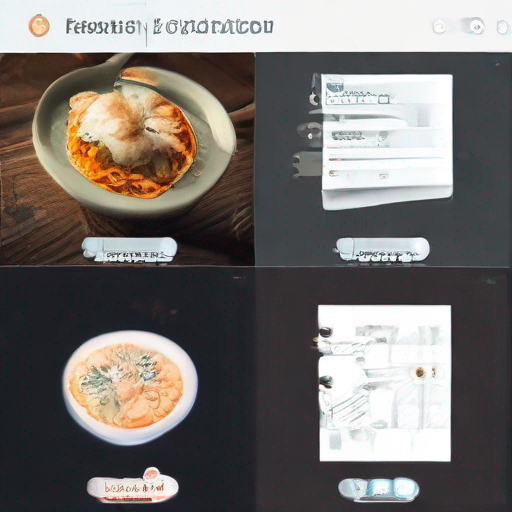AI Food Recipe Generator: Revolutionizing Cooking With Artificial Intelligence
The world of cooking has undergone a significant transformation in recent years, thanks to the advent of artificial intelligence (AI). One of the most exciting innovations in this space is the AI food recipe generator. This technology allows users to input their dietary preferences, ingredient availability, and cooking time constraints, and then generates personalized recipes that cater to their unique needs.
In this article, we’ll delve into the world of AI-powered cooking and explore the benefits, limitations, and potential applications of AI food recipe generators.
How Does it Work?
AI food recipe generators use a combination of natural language processing (NLP), computer vision, and machine learning algorithms to generate recipes. Here’s a simplified overview of the process:
- User Input: Users input their dietary preferences, ingredient availability, cooking time constraints, and any other relevant information.
- Recipe Generation: The AI system uses this input data to generate a list of potential recipes that meet the user’s requirements.
- Recipe Refining: The AI system refines the recipe by adjusting ingredient quantities, cooking times, and techniques based on user feedback and reviews.
Benefits of AI Food Recipe Generators
- Personalization: AI food recipe generators provide users with personalized recipes tailored to their dietary needs and preferences.
- Increased Efficiency: These systems save time by automatically generating recipes that cater to specific ingredient availability and cooking time constraints.
- Creativity Boost: AI-powered cooking can help users discover new flavors, ingredients, and techniques, encouraging creativity in the kitchen.
Limitations of AI Food Recipe Generators
- Limited Ingredient Availability: AI systems may not always have access to a comprehensive database of ingredients, which can limit recipe generation capabilities.
- Lack of Human Touch: While AI-generated recipes can be accurate, they often lack the nuance and creativity that human chefs bring to cooking.
Potential Applications
- Meal Planning: AI food recipe generators can help users plan meals for the week, taking into account dietary restrictions and ingredient availability.
- Cooking Assistance: These systems can assist users with meal preparation, providing step-by-step instructions and adjustments based on user feedback.
- Restaurant Operations: AI-powered cooking can streamline restaurant operations by generating recipes that cater to specific menu items and customer preferences.
Key Takeaways
| Aspect | Description |
|---|---|
| Benefits | Personalization, increased efficiency, creativity boost |
| Limitations | Limited ingredient availability, lack of human touch |
| Potential Applications | Meal planning, cooking assistance, restaurant operations |
Try it Out!
If you’re interested in exploring the world of AI-powered cooking, check out AI Food Recipe Generator for a taste of what’s possible.
In conclusion, AI food recipe generators have the potential to revolutionize the way we cook. By providing personalized recipes and streamlining meal preparation, these systems can make cooking more efficient, creative, and enjoyable. While there are limitations to this technology, the benefits it offers make it an exciting development in the world of culinary innovation.
